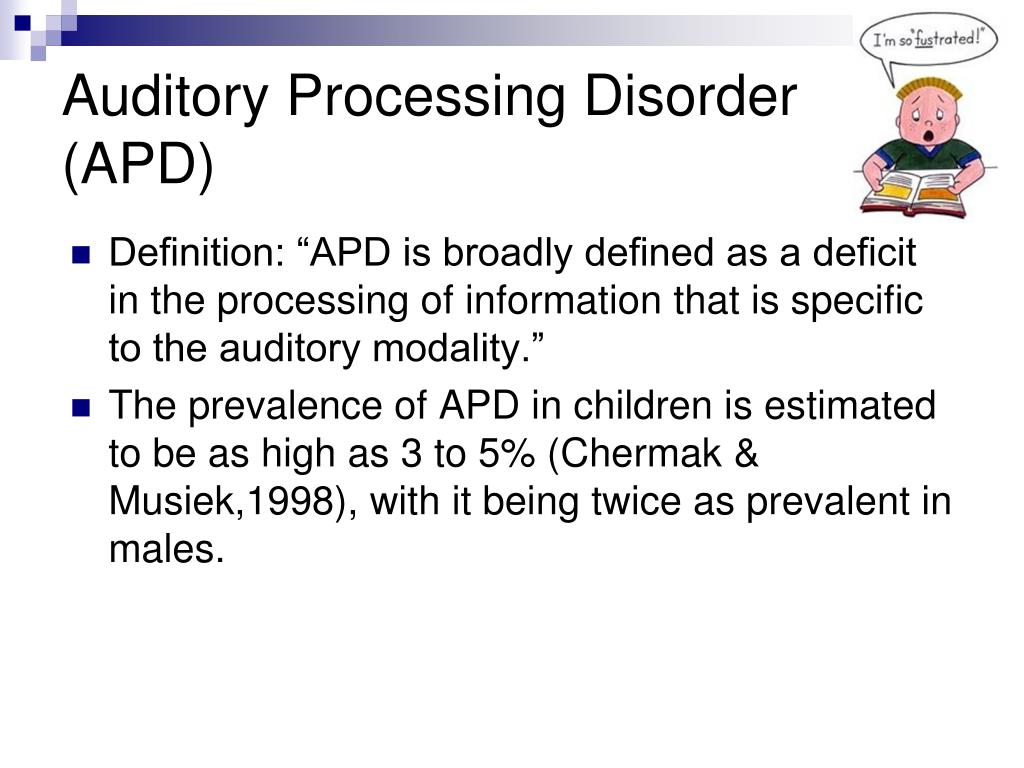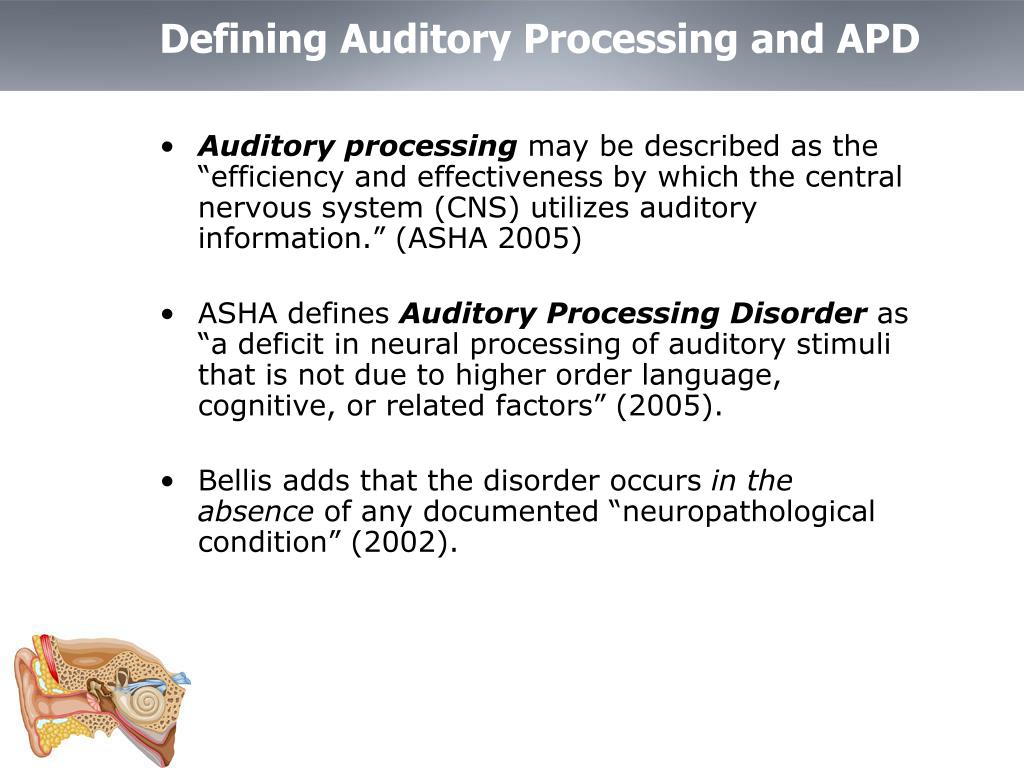
Sensory Processing Disorder, or SPD, can result in over-responsiveness to sensory input, like extreme sensitivity to loud noise or itchy clothing, or under-responsiveness, which might present as a lack of awareness of personal space or thrill-seeking behavior.
Processing disorder professional#
If the brain’s ability to process auditory, visual, and sensory information is impaired, it can affect a person’s ability to thrive in professional and personal settings. What is a Processing Disorder?Ī processing disorder is a deficiency in the ability to effectively process or interpret the information gathered by the senses. We understand what it feels like to cope with these symptoms and we have a plan to help. At Brain Balance, our team is here to help you. Is it difficult for you to tune out noises, wear certain types of clothing, or tolerate certain scents? Do you overreact to inconveniences like dirty hands, or struggle to understand what was said in a conversation? If this sounds familiar, your brain may have difficulty processing sensory, visual or auditory input.Īs an adult, you may feel like you've been applying coping strategies to deal with these processing issues your whole life. suspicion or diagnosis of language disorder or delay.Brain Balance Program for Adults | Brain Balance.history of frequent or persistent middle ear disease (otitis media, ‘glue ear’).neurological disorders affecting the brain.insensitivity to tone of voice or other nuances of speech.undue sensitivity to loud sounds or noise.being overwhelmed by complex or “busy” auditory environments e.g.difficulty understanding in the presence of other sounds.slowness in processing spoken information.difficulty attending to and remembering spoken information.difficulty following spoken directions unless they are brief and simple.Symptoms of hearing or listening problems not consistent with results of basic hearing assessment Consequently assistive hearing devices are not generally required long term for children with APD.Ĭhecklist of APD symptoms and commonly related conditionsįollowing is a checklist of key symptoms of APD, and commonly related conditions, that can be used to identify individuals who should be referred for APD assessment: Due to the neuroplasticity of the brain, auditory training and use of assistive hearing technology can engender permanent improvements in auditory skills. The main treatments are auditory training, assistive hearing technology, and (for children) language therapy including phonological processing therapy. Supplementary information on language development, cognitive abilities, and ability to cope in learning environments is also considered in diagnosing APD in children.ĪPD is very treatable.

APD is diagnosed by audiologists using specialised auditory tests.


APD can affect academic achievement, participation, career opportunities and social development.ĪPD should be suspected when there are otherwise unexplained reports or observations of poor hearing and auditory comprehension in some circumstances despite normal pure tone hearing test results. The overall prevalence in children in New Zealand is estimated at 6.2%, with higher rates in some populations, and also the elderly.

The symptoms of APD bear many similarities to other types of hearing disorder, but APD differs in that it is not detected by standard audiometric assessments. Auditory processing disorder (APD) is an overall term for hearing disorders that result from impaired processing of auditory information in the brain.


 0 kommentar(er)
0 kommentar(er)
